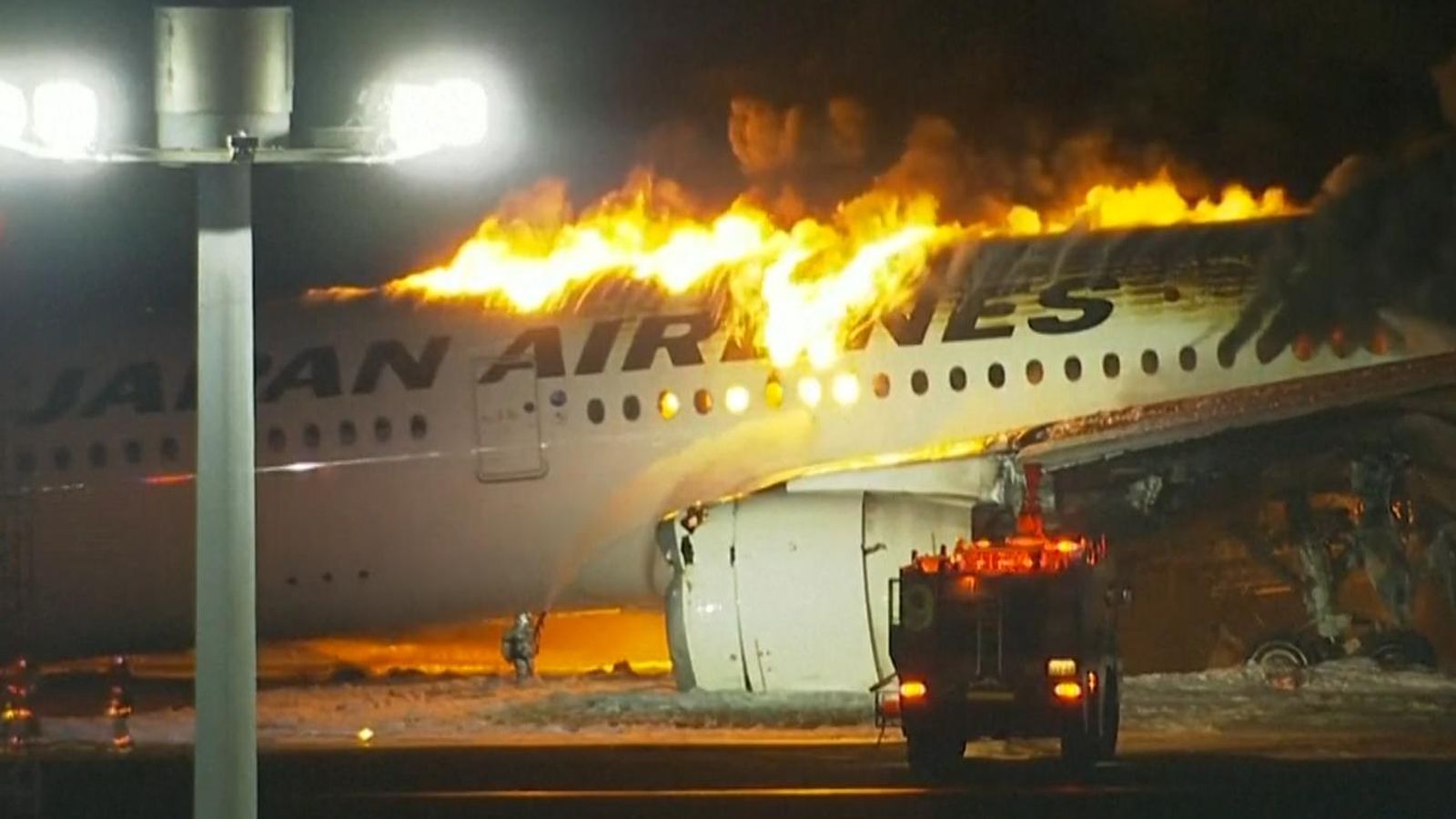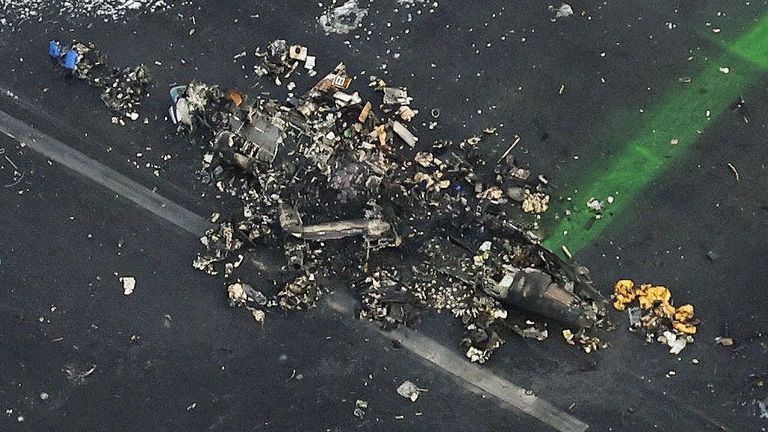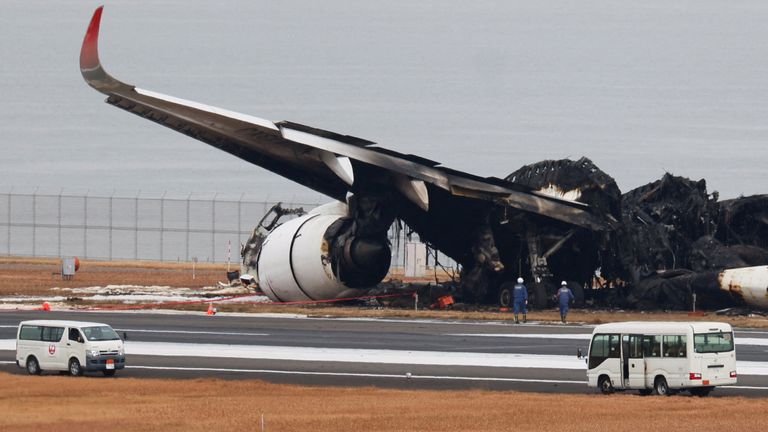A coastguard aircraft that collided with a passenger plane at Tokyo’s Haneda airport had not been cleared for take-off when the crash took place, authorities have said.
The small jet, with a pilot and five passengers on board, was preparing to fly to the city of Niigata to deliver aid to those affected by a recent earthquake when it collided with a landing Japan Airlines (JAL) Airbus A350.
Tower transcripts suggest the JAL passenger flight had been given permission to land.
All 379 people on JAL Flight 516, arriving from the northern island of Hokkaido, managed to evacuate the aircraft after it burst into flames on Tuesday.
Five people aboard the Bombardier Dash-8 Turboprop coastguard plane died, while the pilot who escaped the wreckage is badly injured.
Authorities are now investigating exactly what happened, including how the two planes ended up on the same runway.
Transcripts of traffic control instructions appear to show the JAL flight had been given permission to land, while the coastguard aircraft had been told to taxi to a holding point near the runway.
The transcripts do not indicate that the coastguard pilot had been given permission to take off, an official from Japan’s civil aviation bureau told reporters.
However, the captain of the small aircraft said he entered the runway after receiving permission, a coastguard official said.
In a statement on Wednesday, JAL said its aircraft recognised and repeated air traffic control’s landing permission before touching down.
Read more from Sky News:
What we know so far about the Japan plane fire
Family ‘still in shock’ after evacuating burning aircraft
Agencies in France, where the Airbus was built, and in the UK, where its two Rolls-Royce engines were manufactured, are assisting the Japan Safety Transport Board with its investigation.
The board has been given the voice recorder from the coastguard aircraft, authorities said.
Meanwhile, Tokyo police are investigating whether professional negligence could have contributed to the crash, according to local media.
“There’s a strong possibility there was a human error,” said aviation analyst Hiroyuki Kobayashi, a former JAL pilot.
“Aircraft accidents very rarely occur due to a single problem, so I think that this time too there were two or three issues that led to the accident.”



